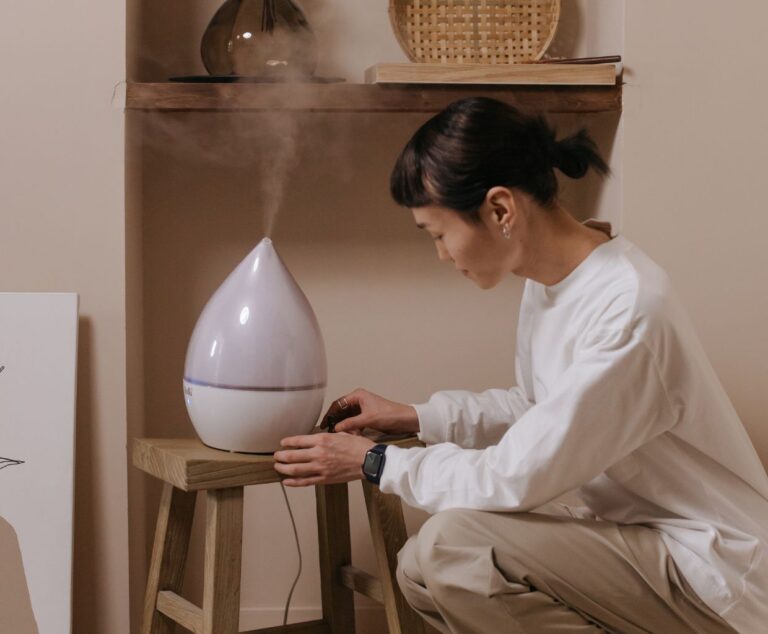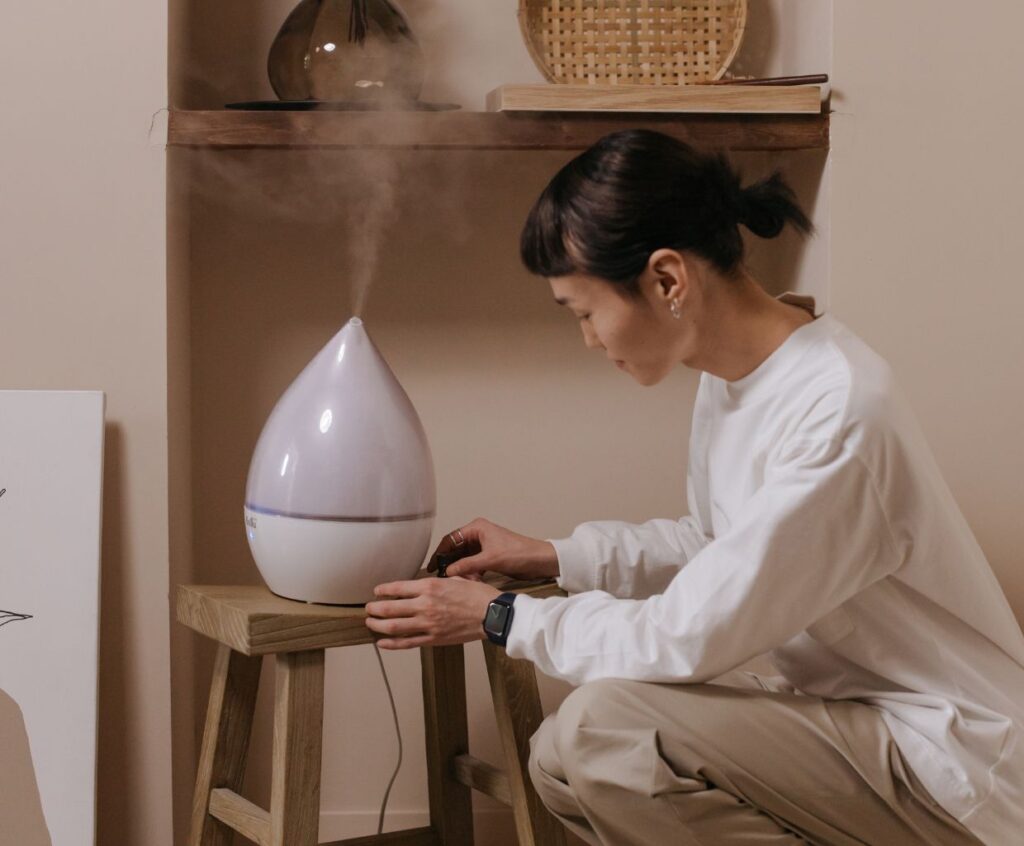Humidifiers are popular devices used to add moisture to the air, providing relief for various respiratory and skin issues. However, like any appliance, there comes a time when you need to stop using a humidifier.
In this article, we will explore the factors that determine when it’s time to bid farewell to your trusty humidifier.
Content Summary
- 1 Signs It’s Time to Say Goodbye
- 2 Can I leave my humidifier on all night?
- 3 How often should I clean my humidifier?
- 4 Can a humidifier make the air too moist?
- 5 Can a humidifier cause allergies?
- 6 Are there any specific signs or symptoms that indicate it is no longer necessary to use a humidifier?
- 7 How can I determine when it is time to stop using a humidifier in my home?
- 8 What are the potential risks or negative effects of using a humidifier for an extended period of time?
- 9 Last Thoughts
Signs It’s Time to Say Goodbye
While humidifiers can offer numerous benefits, it’s crucial to know when to stop using them to avoid potential health risks or maintenance issues. Here are some signs that indicate it’s time to stop using a humidifier:
1. Proper Humidity Level Reached
If your home’s humidity level has reached the ideal range of 30-50%, it may be time to turn off the humidifier. Monitoring the humidity levels with a hygrometer can help you determine if you need to continue using the device.
2. Seasonal Changes
Humidity requirements can vary with the seasons. During the summer when the air is naturally more humid, you may not need to use a humidifier. However, in drier winter months, it can be beneficial. Adjusting your humidifier usage according to the season is essential.
3. Mold or Mildew Growth
If you notice mold or mildew growth in the vicinity of your humidifier, it’s time to stop using it. Excessive moisture can create a breeding ground for these harmful substances, which can lead to respiratory issues and allergies.
4. Excessive Condensation
If your windows, walls, or furniture are constantly covered in condensation, it’s a sign that your humidifier is producing too much moisture. Excessive condensation can damage your home’s structure and promote the growth of mold and mildew.
5. Respiratory Issues Worsen
While a humidifier can provide relief for respiratory problems, if you notice an increase in coughing, congestion, or difficulty breathing, it may be time to discontinue use. In some cases, too much moisture in the air can aggravate certain respiratory conditions.
6. Maintenance Difficulties
Humidifiers require regular cleaning and maintenance to prevent the buildup of mineral deposits, bacteria, and mold. If you find it challenging to keep up with the maintenance requirements, it may be best to stop using the humidifier to avoid potential health risks.
Can I leave my humidifier on all night?
It’s generally safe to leave a humidifier on all night, but it’s essential to monitor humidity levels and ensure proper ventilation to avoid excessive moisture buildup.
How often should I clean my humidifier?
It’s recommended to clean your humidifier at least once a week to prevent the growth of mold, bacteria, and mineral deposits.
Can a humidifier make the air too moist?
Yes, using a humidifier excessively or inappropriately can make the air too moist, leading to mold growth and other potential health issues.
Can a humidifier cause allergies?
If not properly maintained, a humidifier can promote mold and dust mite growth, triggering allergies in susceptible individuals.
Are there any specific signs or symptoms that indicate it is no longer necessary to use a humidifier?
There are a few signs or symptoms that may indicate it is no longer necessary to use a humidifier:
1. Comfortable humidity levels: If the air in your surroundings feels comfortable and not excessively dry, it may indicate that you no longer need a humidifier.
2. No dry skin or respiratory issues: If you notice that your skin is no longer dry or itchy, and you are not experiencing any discomfort in your respiratory system (such as congestion or irritation), it may suggest that a humidifier is no longer needed.
3. Absence of static electricity: Dry air often causes an increase in static electricity, resulting in frequent shocks or clinginess. If you notice a significant decrease in static electricity, it may indicate that the air is adequately humidified.
4. Condensation on windows: Excessive humidity can lead to condensation on windows or other cold surfaces. If you do not observe condensation, it may imply that the air is not overly dry and a humidifier is unnecessary.
Remember, individual comfort levels may vary, so it’s important to assess your specific needs and consult with a healthcare professional if you have any concerns.
How can I determine when it is time to stop using a humidifier in my home?
There are a few signs that can help you determine when it is time to stop using a humidifier in your home:
1. Check the humidity levels: Use a hygrometer to measure the humidity levels in your home. The optimal range is typically between 30% and 50%. If the humidity levels consistently exceed 50%, it may be a sign that you can stop using the humidifier.
2. Observe condensation: If you notice excessive condensation on windows, walls, or other surfaces, it may indicate that the humidity levels are too high. This can be a sign that you no longer need the humidifier.
3. Monitor respiratory comfort: If you or your family members are experiencing respiratory issues, such as congestion or coughing, it could be a sign that the air is too humid. In such cases, reducing or stopping the use of the humidifier may be beneficial.
4. Consider the season: Humidity needs vary depending on the season. In the summer, when outdoor humidity is generally higher, you may not need to use a humidifier indoors. However, during winter when the air tends to be drier, a humidifier may be necessary.
5. Consult manufacturer’s recommendations: Manufacturers often provide guidelines on how and when to use their humidifiers. Refer to the user manual or contact the manufacturer for specific instructions regarding when to stop using the humidifier.
It is important to strike a balance with humidity levels to maintain a healthy and comfortable indoor environment. Regularly monitoring the humidity levels and observing the signs mentioned above can help you determine when it is time to stop using a humidifier in your home.
What are the potential risks or negative effects of using a humidifier for an extended period of time?
Using a humidifier for an extended period of time can have some potential risks or negative effects, including:
1. Increased mold and bacteria growth: Excessive humidity can create a damp environment that promotes the growth of mold, mildew, and bacteria. This can lead to respiratory issues, allergies, and worsen existing respiratory conditions.
2. Allergic reactions: Humidifiers can disperse allergens such as dust mites, pollen, and pet dander into the air, triggering allergies and asthma symptoms in sensitive individuals.
3. Respiratory problems: Prolonged exposure to high humidity levels can cause respiratory problems, especially in those with pre-existing respiratory conditions such as asthma or chronic obstructive pulmonary disease (COPD). It can lead to difficulty breathing, wheezing, and increased mucus production.
4. Skin issues: Excessive moisture in the air can contribute to increased moisture on the skin, leading to skin irritation, eczema flare-ups, and acne breakouts. It can also worsen existing skin conditions.
5. Damage to furniture and electronics: High humidity levels can cause wooden furniture, musical instruments, and electronics to warp, swell, or malfunction. It can also lead to the growth of mold or mildew on these items.
6. Increased energy consumption: Running a humidifier for an extended period can consume significant amounts of electricity, resulting in higher energy bills.
7. Over-humidification: If a humidifier is not properly controlled or monitored, it can lead to over-humidification, causing excessive moisture in the air. This can create a stuffy or uncomfortable environment and promote the growth of mold and bacteria.
It is important to maintain proper humidity levels (usually between 30-50%) and regularly clean and maintain humidifiers to minimize these risks and negative effects.
Last Thoughts
Knowing when to stop using a humidifier is essential for maintaining a healthy indoor environment. Monitoring humidity levels, addressing maintenance issues, and being aware of the signs mentioned above can help you determine the appropriate time to bid farewell to your humidifier.
Remember, striking the right balance in moisture levels is key to enjoying the benefits of a humidifier without any adverse effects.


